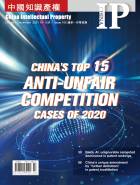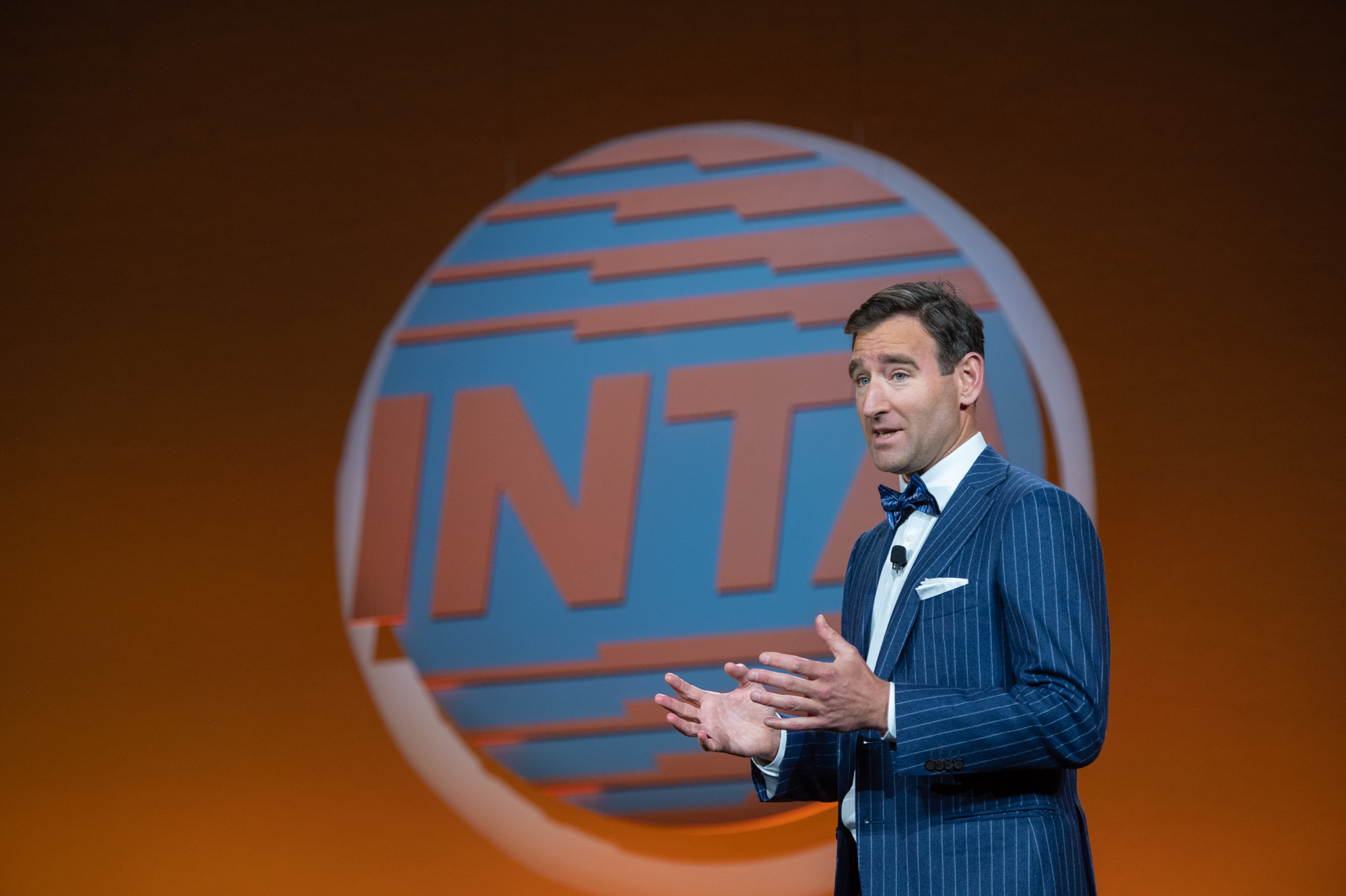Zeeger Vink, IP director of MF Brands Group, is the INTA 2022 President. In this role, he is Chair of the Board of Directors and the Executive Committee. In an interview with China IP, Mr. Vink shares his insight on trademarks and brands, provides practical advice to Chinese members on how to participate in and benefit from the INTA community. INTA Annual Meeting Live+ officially began on April 30, took place in person in Washington, D.C., and virtual.
China IP
First of all, congratulations on being 2022 President of INTA with a one-year term and thank you for accepting China IP‘s interview. As a specialist, how do you think about trademarks and brands, do trademarks and brands have eternal or phased significance?
Zeeger Vink
Thanks. That is an interesting question. I think we can mostly say that they have potential eternal significance. If you look at certain brands that have existed for a very long time, and so the fact that they are old, is in itself, not an issue and also, if you look at the international trademark system and the intellectual property rights for trademarks, they can have an almost unlimited lifespan. In short, as long as a trademark is being used, it can be renewed, so they can continue existing. So, I think that is very much in line with reality and it would be a shame if, I don't know, after 100 years a brand cannot exist anymore, and we say, “your time is up, and you have to disappear!” I think it is good to take the consumer as the starting point, and as long as consumers recognize a brand and believe in it, and buy the company's products or services, then it can continue existing for a very long time.
China IP
In light of INTA's own evolution and the data it holds, do you find human beings are paying more and more or less and less attention to trademarks and brands?
Zeeger Vink
In general, consumers’ interaction with brands in increasing. And that is because there are more ways that we interact with brands, it is not just in places where we buy products. Today, as consumers, we also communicate with brands in various media and, the development of online media over last few decades has certainly stimulated this communication enormously. And so, because we are seeing messages and following things on the Internet all the time, there is more and more interaction, I would say.
China IP
What are the emerging trends of the industry of trademark and brands?
Zeeger Vink
Well, I think taking into account this new way of interacting with brands, it is important to see that the communication goes in two ways. Brands cannot just communicate in one direction, they also have to take into account what consumers’ think. Today, consumers are able to contribute to the brand narrative, through comments on social media, for example. Brands have to be sensitive to that, they have to adapt to that. This is especially important if brands want to build consumer trust and loyalty, and want consumers to share their values. No doubt, this two-way interaction is a very important trends that will continue for quite some time.
Corporate social responsibility is also connected to this important trend. A company’s social and environmental track record plays an important role in the overall brand image, and consumers are sensitive to that. There's quite a few studies now that illustrate how consumers make their buying decisions based on a company’s CSR record. For INTA members, it is very important that these topics are being discussed. In the same vein, they’re also part in INTA’s new 2022-2025 Strategic Plan.
China IP
Regarding the Chinese members, how are they doing in the INTA community now? Do they engage more?
Zeeger Vink
Over the years, we have seen an increase in members from China, both companies and law firms. We also see an increasing influence of the Chinese members in the organization. Currently, we have two members from China on the board of directors, which is fantastic. We have currently 166 committee members from China. INTA is driven by committees, the work of the committee's determines the output of the organization. Having these members on committees is very important and we encourage members from China to be active in those committees; this helps the organization a lot, and also the members from China to connect with people from all over the world.
China IP
What trends have you observed formerly as the IP head of an INTA member company and now as its president?
Zeeger Vink
It is very enriching experience to have worked in a law firm previously and now as in-house counsel. This is important as I can draw on these experiences in INTA. Having the experience in various industries as both in house and external and also working in several countries is something that I hope is beneficial for the organization.
China IP
How do Chinese members benefit from the INTA community? Meanwhile, how do they contribute to it? What advice to them on making better use of this community to thrive?
Zeeger Vink
Yes, it's a very good point. I said, I think the best way to contribute is by becoming a committee member. We have many committees covering various IP topics and issues. I'm quite sure there are always topics of interest for every member. Serving on a committee is also a fantastic way of working together, sharing your experience, also promoting the interests of China and Chinese brands. We have a very concrete and good input from Chinese members on a report that INTA made on the implementation of China's trademark law (amended trademark law) in 2019. And, at last year’s virtual Annual Meeting we held our first ever China case law update. This took place again this year. Generally, we always have very good input from Chinese members when we have delegation visits to meet with public authorities in China. Overall, we always have very good support from our members in China.
China IP
In 2022, regarding Chinese members, as the 2022 president of INTA, do you have concrete goals to achieve? If so, what are these goals?
Zeeger Vink
And I would say again the goal is to have members become active as much as possible, I think we can still use more active contributions of Chinese members. They represent a very important market so we really welcome them to be part of this global organization.
China IP
As the 2022 president of INTA, you’ve chosen IP Reporting the focus and priority of your work, what consideration is this choice based on? How does this relate to your work experience with MF Brands Group and your entire career? What benefits does IP reporting have for trademark and brand owners? Can you give an example?
Zeeger Vink
It's not always easy to explain what we are doing or even to explain intellectual property to the general public. That is an area where we can improve. And, as an organization, we want to give our members guidelines on how they can do this too. And one of the very basic methods is by doing IP reporting and explaining what we are doing. This includes writing down our achievements, which can form part of the internal IP reporting within a company.
So, this can mean that the IP department report on their operational activities, for example, the size of portfolio or how many oppositions were launched. And, in external reporting, such as in public company reports, they can show how important IP is for the company and, for example, the actions that those companies take in terms of anticounterfeiting and brand protection. In general, and I think these are very good ways of showing the world what IP is, how important is for companies in the long term, and the role that IP plays in the economy and in society.
China IP
How will Chinese members execute IP reporting?
Zeeger Vink
What you can do is start with making a report what you think you want to communicate within your company and to your management. Maybe make an appointment with the board of directors and ask them whether you can have the opportunity to show what you are doing, to share the report, to take questions, and to explain how intellectual property contributes to the economic acquisition of a company.
On the other hand, we have the financial reporting of intellectual property. A lot of IP specialists work every day to improve their trademarks and brands, but they don't know the true value of this IP. They have never looked into the financial assessment of it, and so it would be interesting for them as IP lawyers to connect with the finance departments and ask them what value they assign to the brands, and how can intellectual property contribute to that. No doubt, this would be an interesting exchange and it is a good starting point for better understanding in the company on the value of its IP. This is something we can only encourage people to do.
China IP
I know that you will also lead INTA in working on brand restrictions, which is challenged to some brand owners. Please provide some specific cases to illustrate the disadvantages of brand restrictions.
Zeeger Vink
Yes, we are very concerned by brand restrictions. Such regulations restrict how companies can communicate with their consumers. Brand owners should be entitled to the use of their trademarks and other branding elements. It's very important to note that INTA recognizes the reasons governments have for implementing such regulations and, when it’s about consumer health or about social issues, we do acknowledge that these are important, but we think that restricting the communication between brands and consumers is not the right approach to the issues they are trying to address. For consumers who are used to making informed choices about products and the companies that produce them-if you take that away-consumers will have less informed choices, and there will be less consumer trust. Imagine packaging without any branding, this can lead to an increased risk of counterfeits because consumers will not be able to tell the difference between the authentic brands and the copies.
China IP
What can Chinese members contribute to INTA’s work on this issue and how can they benefit from it?
Zeeger Vink
Personally, I don't think there is a specific argument regarding China, I think this is a global problem started in some countries. It all began with tobacco products in Australia, which was one of the first countries to enact plain packaging legislation. But there are other countries that are following suit in Africa, Asia, Europe and Latin America, so this is a global phenomenon. Governments often look to other governments to see how they approach those issues. China could witness this kind of plain packaging movement and again I think what we see or what we hear from our members, it's not the right approach, because the impact on the consumers is huge, and there is no substantiated evidence that plain packaging works, so we affect a very important element in society, namely branding and consumer communication for a reason that is not very well developed.
China IP
Last question, what were the thematic topics of INTA's 2022 Annual Meeting? What are the thoughts underlying the shaping of these topics?
Zeeger Vink
First of all, we were very happy that we could go back to an in-person meeting this year while still catering for those who could not or chosen not to travel with a full virtual program. This is something we will continue in the coming years.
When it comes to the topics of this year's annual meeting, we had seven educational tracks, one of which Build a Better Society through Brands and so that was very much in line with one of the strategic pillars of INTA. As we have discussed, communication between consumers and brands goes in two ways: consumers expect more from brands, they want to see brands' values and convictions, and so we want to understand this and, importantly, understand how we as practitioners can play a role in this dynamic and in how brands can build a better society.
The second and third tracks were Complimentary Rights, Regulatory Issues, and Brand Restrictions; and Enforcement and Anti-counterfeiting. The latter remained a very high priority for the Association. Then we had Innovation in the Future of IP, so here we looked at our companies and law firms and how we can embrace the future. I think technology is a very important word here, and the legal domain has always lagged a little bit behind other domains in terms of technology, but I think there's a quick catch up going on. And we see, for example, in law firm management and also in company management, a lot of use have technology these days, so that is interesting to follow.
Then we had the Professional Development track, this also corresponds to a strategic direction of our 2022-2025 Strategic Plan, and we want to make sure that all the members have opportunities for development both in terms of substantive skills and legal knowledge but also in terms of dynamic skills. We can be highly skilled specialists, we can be very good lawyers, but if we don't learn how to communicate, how to interact with the world around us, it will handicap us. So, through this track and other initiatives, we are working to provide our members with the tools to succeed as they evolve in their roles.
Finally, there was the Business of Brands track, which was more about the financial value of brands and the financial reporting and, lastly, we had a track of Regional Updates as we always do, so that was where people can really focus on specific areas of the world, countries or regions and, of course, China is part of that.








 京公网安备 11010802020770号
京公网安备 11010802020770号